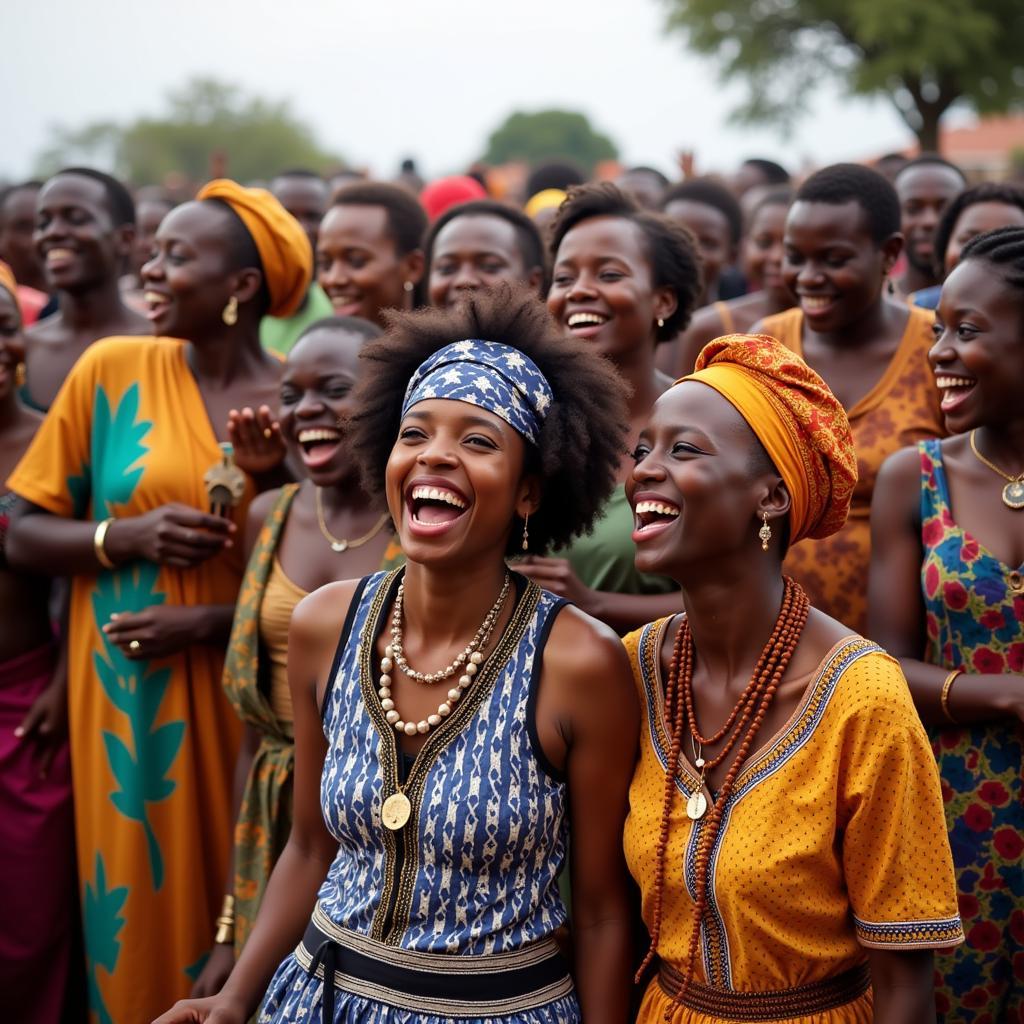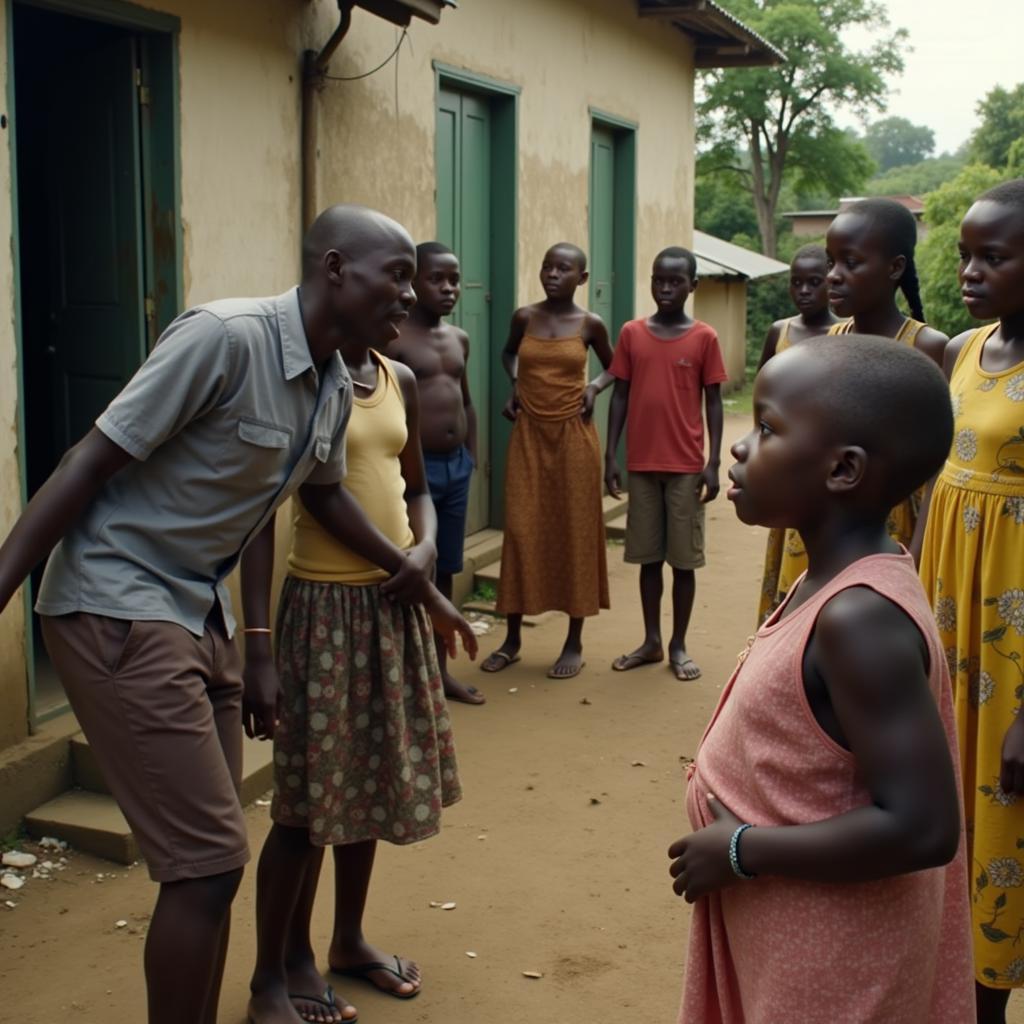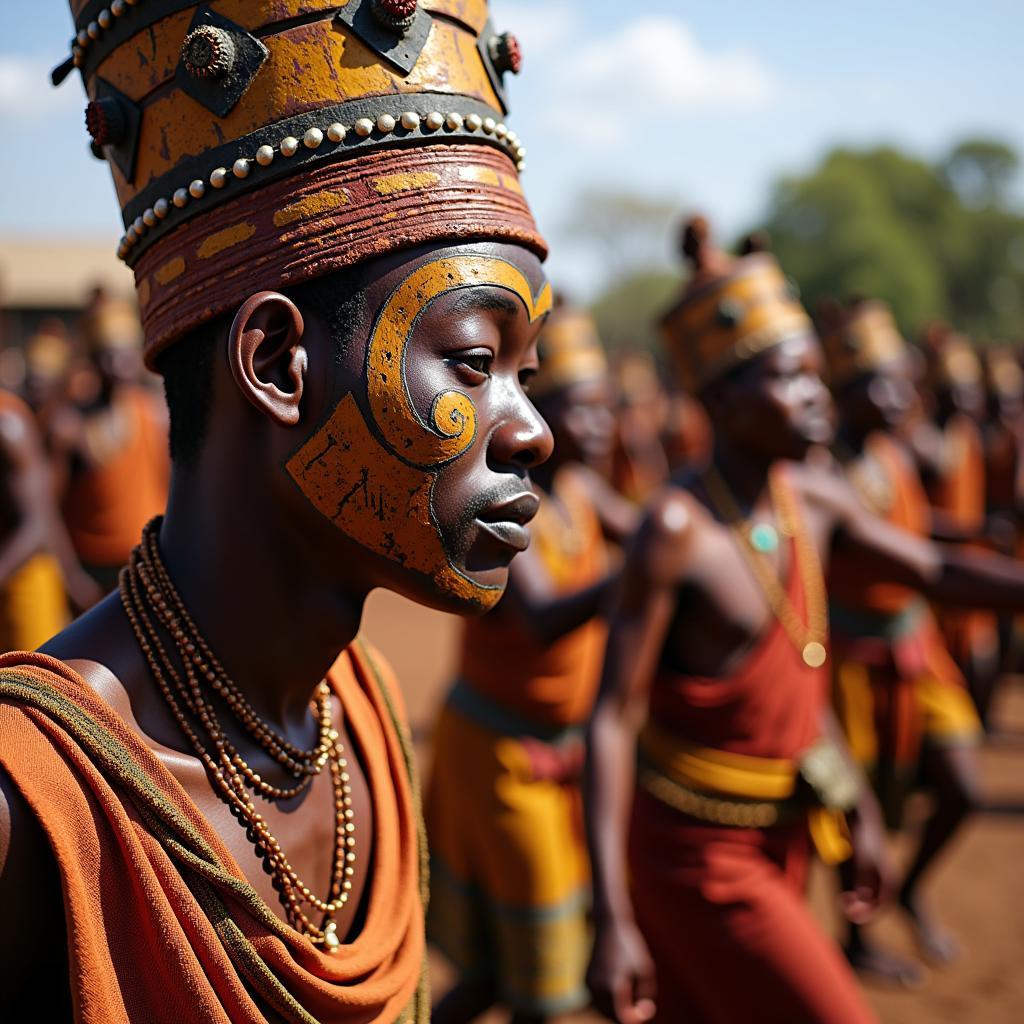The Heart of African Society: Understanding the African Extended Family
The concept of family in Africa extends far beyond the nuclear structure familiar in many Western cultures. Here, the “African Extended Family” reigns supreme, encompassing a wide network of relatives who play integral roles in each other’s lives. This deep-rooted system forms the very bedrock of African society, influencing everything from social structures and economic support to cultural values and individual identity.
A Wider Circle: Who Makes Up the African Extended Family?
Unlike the Western model that often prioritizes the nuclear family unit, African culture embraces a broader definition. This includes not only parents and children but also grandparents, aunts, uncles, cousins, nieces, nephews, and even distant relatives. In some cases, close friends and members of the community are also considered part of this intricate web of relationships.
 A large African family gathered for a celebration
A large African family gathered for a celebration
This expansive definition goes beyond blood ties, emphasizing a shared sense of belonging, responsibility, and mutual support that binds individuals together as a collective unit.
More Than Just Relatives: The Significance of the Extended Family System
The African extended family is not just a social construct; it’s a deeply ingrained system with profound implications on various facets of life:
1. A Safety Net of Support
One of the most crucial roles of the extended family is providing a strong safety net for its members. This can manifest in various ways:
- Financial Assistance: In times of economic hardship, family members rally together to provide financial support, ensuring everyone’s basic needs are met.
- Childcare and Education: Raising children is a communal effort. Extended family members often assist with childcare, reducing the burden on parents and fostering a sense of shared responsibility. This support often extends to educational expenses, with relatives contributing to school fees and supplies.
- Elderly Care: Respect for elders is paramount in African culture. The extended family plays a vital role in caring for aging members, ensuring their well-being and providing companionship.
This unwavering support network provides a sense of security and belonging, knowing that help is always available within the family circle.
2. Preserving Cultural Values and Traditions
The African extended family acts as a guardian of cultural heritage, transmitting values, customs, and traditions from one generation to the next. This intergenerational transmission occurs through:
- Storytelling: Elders often share folktales, proverbs, and ancestral history, instilling cultural pride and moral values in younger generations.
- Rituals and Ceremonies: Many African cultures have rich traditions surrounding birth, marriage, and death. The extended family plays a central role in these events, ensuring the preservation of cultural practices and reinforcing a sense of communal identity.
By upholding these traditions, the extended family ensures the continuity of cultural heritage in a rapidly changing world.
3. Shaping Individual Identity
The African extended family plays a significant role in shaping individual identity:
- Sense of Belonging: Growing up within a large, interconnected family provides individuals with a strong sense of belonging and community.
- Shared Responsibility: The collective nature of the extended family fosters a sense of shared responsibility and accountability, shaping individuals into contributing members of the community.
- Values of Respect and Cooperation: The emphasis on respect for elders, cooperation, and communal harmony within the extended family instills these values in individuals from a young age.
This upbringing within a close-knit family unit shapes individuals who are empathetic, community-oriented, and deeply rooted in their cultural heritage.
Navigating the Complexities: Challenges and Adaptations
While the African extended family offers numerous benefits, it also presents challenges:
- Financial Strain: Supporting a large network of relatives can put a strain on individual resources, especially in economically challenging times.
- Interference and Conflict: The close-knit nature of the extended family can sometimes lead to interference in personal decisions and interpersonal conflicts.
Despite these challenges, the African extended family continues to adapt and evolve in response to societal changes, demonstrating its resilience and enduring importance in the lives of many Africans.
Conclusion: The Enduring Strength of African Family Ties
The African extended family is more than just a social structure; it’s a lifeline, a cultural cornerstone, and a defining element of the African identity. While facing modern challenges, this time-honored system continues to provide its members with unwavering support, a strong sense of belonging, and a profound connection to their cultural heritage. As Africa steps into the future, the extended family will undoubtedly remain a vital source of strength and resilience for generations to come.


